250
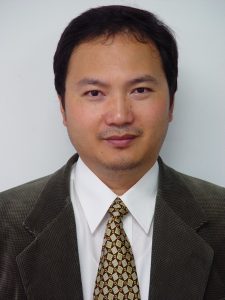
Invited Lecture:
A complex landslide in Ichinose area triggered by the 2024 Noto Peninsula Earthquake in Japan
Dr. Gonghui Wang is a Professor at the Disaster Prevention Research Institute (DPRI), Kyoto University, where he leads research on landslide dynamics and disaster risk reduction. His work focuses on rapid long-runout landslides, landslide liquefaction, slope erosion, and landslide dam behavior. With a Ph.D. from Kyoto University and an extensive publication record, he is internationally recognized for advancing the scientific understanding of landslide mechanisms. Dr. Wang also serves in prominent roles such as Chair of JTC1 (FedIGS) and Director of the Japan Landslide Society, contributing significantly to global landslide research and practice.
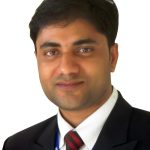
Invited Lecture:
Development of a Laboratory-Scale Model to Evaluate Rainfall-Induced Surface Erosion Mitigation in MICP-Treated Sand
Dr. Arvind Kumar Jha is an Associate Professor in the Department of Civil & Environmental Engineering at IIT Patna, holding a Ph.D. from IISc Bangalore. His research specializes in geotechnical and geo-environmental engineering, including topics like ground-improvement techniques, soil stabilization with admixtures, environmental geotechnics, bio-geotechnics, underground excavation, and rock mechanics. Before joining IIT Patna in November 2019, he worked as an Associate Professor at Manipal University Jaipur and has experience as a civil engineer and consultant. He is also a life member of the Indian Geotechnical Society.

Invited Lecture:
Potential Natural Hazards in Kathmandu, Nepal: Lessons from Stratigraphic Analysis of the Pleistocene Succession in the Kathmandu Valley
Prof. Dr. Tetsuya Sakai is a professor in the Department of Earth Science at Shimane University, Japan. He specializes in sedimentary geology and has conducted field-based sedimentological studies on the Pleistocene succession of the Kathmandu Valley since 1999, aiming to reconstruct its climatic history and tectonic evolution. He currently serves as the Director of the Center for Natural Disaster Reduction Research and Education at Shimane University.
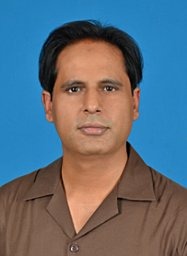
Invited Lecture:
Harnessing Pakistan’s Hydropower Potential: The Critical Role of Engineering Geology in the Northern Areas
Prof. Dr. Mian Sohail Akram is an experienced academic in applied geo-sciences with a robust career trajectory at the University of the Punjab. After starting as a Lecturer in 2005, he steadily progressed through the ranks to become a full Professor. He earned his doctoral degree in Geomechanics from UNSW, Australia, and specializes in areas like rock and soil mechanics, geomechanics, and geohydrology.
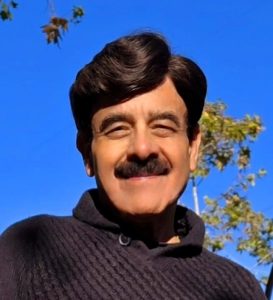
Invited Lecture:
Resilient Tunnelling in the Himalayas: Lessons from Recent Projects
Dr. Manoj Verman is a senior engineering geologist with extensive experience in rock mechanics, tunneling, slope stability, and underground excavation. He obtained his Ph.D. in Rock Mechanics from the University of Roorkee (now IIT Roorkee) and has over four decades of academic, research, and consultancy expertise in India and abroad. Dr. Verman has worked on hydropower, mining, and infrastructure projects, contributing significantly to rock engineering design and problem-solving. He is a past President of the Indian National Group of the International Society for Rock Mechanics (ISRM) and has published widely in international journals, conferences, and technical forums.
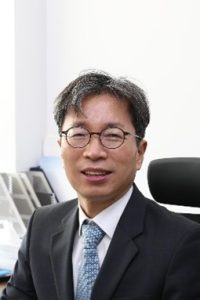
Invited Lecture:
Quantitative Debris Flow-Induced Vulnerability Assessment
Prof. Yun-Tae Kim, as a professor at Pukyong National University, specializes in landslide hazard and risk assessment. His research focuses on the development of susceptibility and vulnerability models that integrate hazard-level rainfall thresholds, seismic triggers, and building structural types. He is actively involved in advancing quantitative approaches for disaster risk reduction and resilient infrastructure planning in mountainous and urban fringe regions.
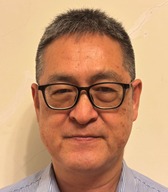
Keynote:
On the Catchment Sedimentation and Landslides Induced by 1999 Taiwan Chi-Chi Earthquake
Prof. Dr. Keh-Jian (Albert) Shou is Vice President for Asia of the International Society for Soil Mechanics and Geotechnical Engineering (ISSMGE). A distinguished scholar in geotechnical engineering, he has led pioneering research and major infrastructure projects, contributed extensively to education, and promoted international collaboration in soil and rock engineering.
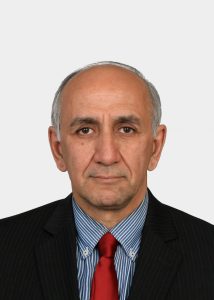
Invited Lecture:
Deep Excavation in Urban Areas: Design and Construction Challenges
Dr. Shahab Yasrebi is a distinguished geotechnical consultant and engineer with over 37 years of international experience in underground infrastructure, deep excavations, ground improvement, and geotechnical site investigations. Renowned for his leadership in complex urban tunneling projects and expertise in the New Austrian Tunneling Method (NATM), he has contributed extensively to the field through more than 250 technical publications and numerous keynote presentations at global conferences. Holding a PhD in Civil Engineering, Dr. Yasrebi has combined academic excellence with practical project management, serving in prominent roles across industry and academia, and remains an active member of leading international geotechnical and tunneling associations.

Keynote:
Glacier instabilities identification and monitoring: Case Studies in the Alps
Dr. Daniele Giordan is a Senior Researcher at the Italian National Research Council (CNR), Institute for Geo-Hydrological Protection (IRPI). He leads the GeoHazard Monitoring Group and serves as Chairman of IAEG Commission C35 on Monitoring Methods and Approaches in Engineering Geology Applications. Dr. Giordan’s research focuses on innovative monitoring techniques for landslides and other geohazards. He is a recognized expert in remote sensing and geotechnical instrumentation. He is also a member of the editorial boards of Engineering Geology, Natural Hazards and Earth System Sciences, and Remote Sensing, contributing significantly to scientific advancements in engineering geology.
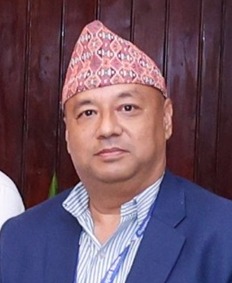
Keynote:
Role of DMG in Advancing Engineering Geological Sciences in Nepal
Mr. Dinesh Kumar Napit is the Director General of the Department of Mines and Geology (DMG), Government of Nepal. With over two decades of professional experience, he has held several key positions within DMG, including Deputy Director General (Spokesperson) and Project Chief of the Petroleum Exploration Promotion Project. He has contributed significantly to Nepal’s mineral exploration, petroleum promotion, and geoscience-based resource management. Mr. Napit is also active in professional societies, serving as General Secretary of the Nepal Geological Society (2013–2015). His leadership focuses on strengthening geological research, sustainable resource utilization, and policy development in Nepal’s mineral and energy sectors.